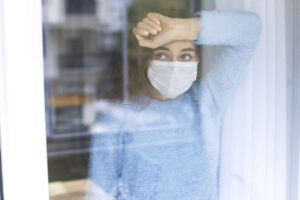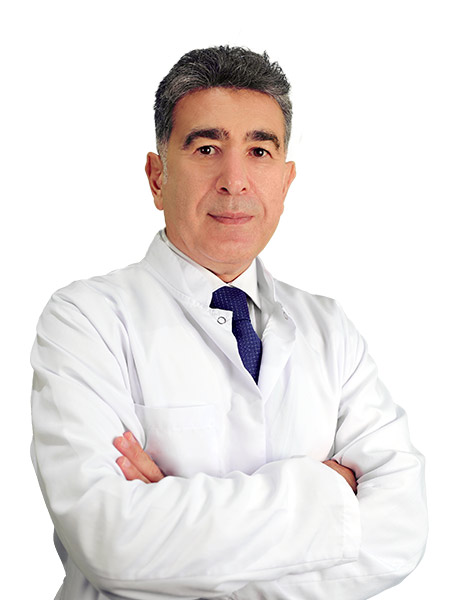10 important rules for living with a Covid-19 positive patient
Attention! It should not be neglected even for a moment!
There are more Coronavirus cases at homes nowadays! Stating that the Covid-19 infection, which has been increasingly spreading almost every day at global scale, evolves into a state of one infected person in almost every house, Professor of Infectious Diseases and Clinical Microbiology Çağrı Büke, M.D., from Acıbadem Healthcare Group says “Considering the fact that about 80% of the patients diagnosed with Covid-19 through PCR test can be cared at home setting, one should always remember that Covid-19 is mostly contracted in indoor environments. This fact pushes us to review considerations for living together with a Coronavirus-positive case in the same house.” So, what are the considerations that should not be neglected even for a moment while living together with a Coronavirus-positive patient? Professor of Infectious Diseases and Clinical Microbiology Çağrı Büke informs about 10 golden rules and make important advice and warnings.
It is necessary to live in separate rooms
A person with positive Covid-19 test must live in a separate room for a while. Door of the room should always be closed and the patient should eat in this room, reserved for him/her for a while, away from other family members.
A mask should necessarily be worn when getting into the room
Nobody should get into the patient’s room unless it’s really necessary and the patient should not leave the room except for compelling reasons. If it is necessary to enter the patient’s room, a mask should be worn such that it completely covers the nose and mouth. The rule of wearing mask should not be neglected even for a moment and social distancing should not be ignored.
Bathroom should be cleaned after each use
If possible, a separate bathroom is reserved for the patient to have toilet and bath needs met. If it is not possible and other family members need to use the same bathroom, then toilet, sink, basin, taps, surfaces and floor should be cleaned with a disinfecting agent after each use.
Laundry and eating utensils should not be shared
Laundry, cutlery and other items, such as water glasses, used by the coronavirus patient should not be shared. His/her laundry should be washed separately in a washing machine, while eating utensils should be washed in dishwasher or under running water by hand using detergent.

Hands should be washed after contacting the common areas
Hands should be washed with soap and water for 20 seconds immediately after contacting any surface at common areas, before and after meal, after bathroom, before and after cooking and after contacting with objects in indoor areas. Hand sanitizers can be used as well for hand hygiene.
Coronavirus patient should wear a mask at home
Coronavirus patient should wear a mask, such that it completely covers the mouth and nose, when it is necessary to go to the bathroom or other rooms.
Surfaces should be cleaned frequently
Door handles, electric switches and other surfaces that may be touched should be cleaned with disinfecting agent and detergent after each contact.
A separate towel should be used
As towels pose high risk of transmission, a separate towel should be used by each family member under normal circumstances. Especially if there is a coronavirus patient at home, towels should never be shared. A separate towel should be allocated or paper towel can be used. Paper towel and toilet paper waste should be kept in a separate bag and disposed after the bag is tightly sealed.
Pillowcases should be changed every day
Pillowcases of a coronavirus patient should be changed every day and washed in washing machine at minimum 60 degrees Celsius and bed clothes should be changed once every three days and washed at minimum 60 degrees Celsius.
Home should be ventilated regularly
Coronavirus patient’s room and all other areas of the home should be ventilated for several minutes on daily basis. Also, Covid-negative family members should never allow ‘get-well’ visits. Because visits pose high risk of spread in indoor areas!
Professor of Infectious Diseases and Clinical Microbiology Çağrı Büke adds “Such measures should be maintained for a while after Covid-19 test result become negative; if no test has been done, these measures should be maintained for 48 hours after symptoms disappear completely or approximately for 14 days following onset of the symptoms. However, it should be kept in mind that this virus may, sometimes, be excreted by the body after a longer interval.”















